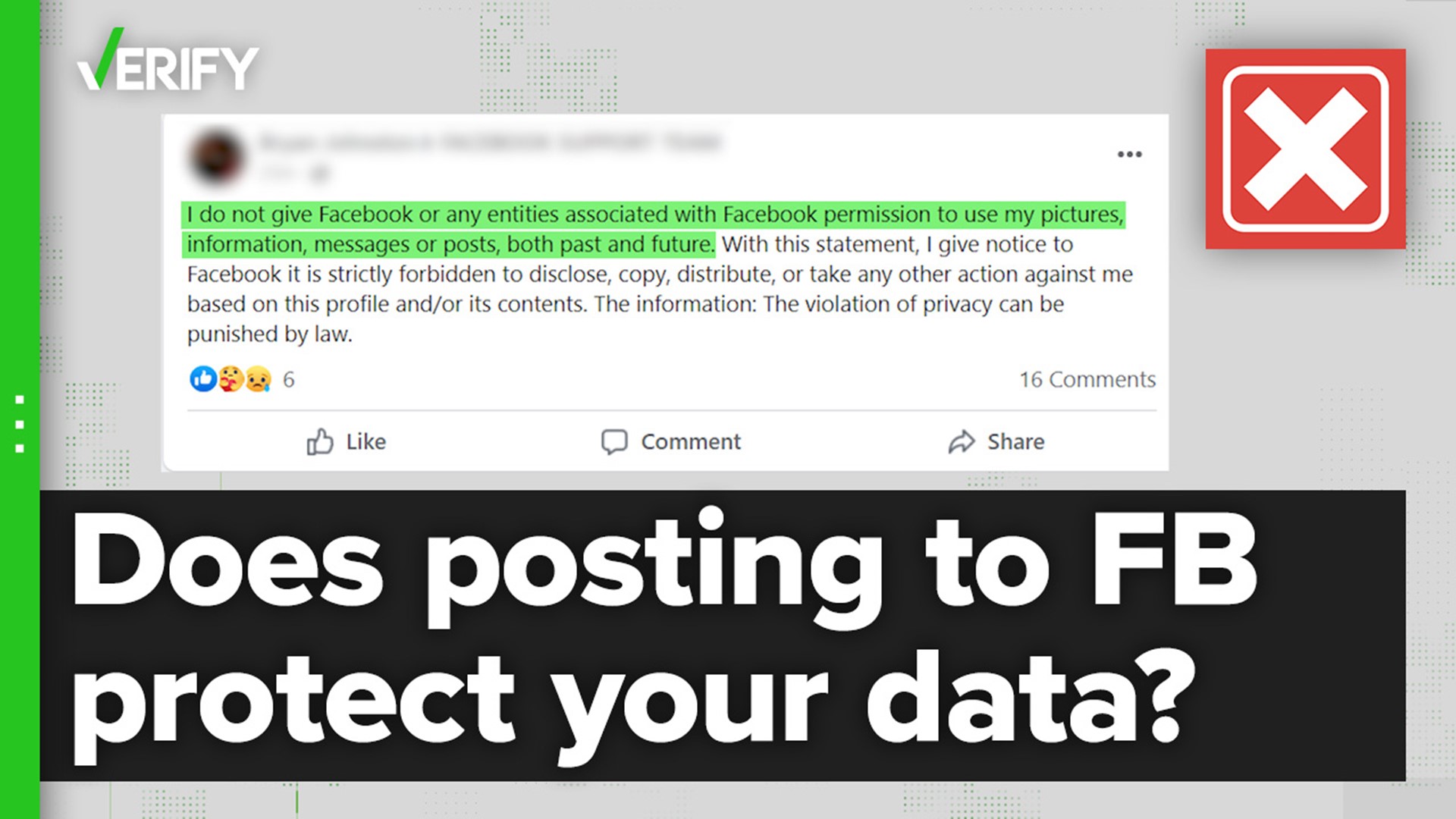For at least a decade, variations of a chain message that claims to protect the data of the poster have spread around Facebook. In each version of the message, it says that if you copy and paste its text, you will prevent Facebook from using your data such as pictures, information, chat messages and posts.
One such version of the message spread around Facebook in early October 2022:
“Don’t forget tomorrow starts the new Facebook (aka...new name, META) rule where they can use your photos. Don't forget the Deadline is today!!! I do not give Facebook or any entities associated with Facebook permission to use my pictures, information, messages or posts, both past and future. With this statement, I give notice to Facebook it is strictly forbidden to disclose, copy, distribute, or take any other action against me based on this profile and/or its contents. The information: The violation of privacy can be punished by law NOTE: Facebook is now a public entity. All members must post a note like this.”
Multiple VERIFY readers who have seen similar posts reached out to ask if the message’s claims were legitimate.
THE QUESTION
Can posting a message on Facebook stop the company from using your data and posts?
THE SOURCES
Nolo, an online legal guide
THE ANSWER
No, posting a message on Facebook cannot stop the company from using your data and posts.
WHAT WE FOUND
You cannot change how Facebook uses your data by posting a message to your page. That’s because the way a social media network uses your data is determined by the terms of service you agree to when you use or make an account on its website, and to some degree, the options you select on your account’s privacy settings.
“Currently, posted privacy policies—rather than specific federal or state laws—typically determine your privacy rights concerning the personal data that Internet-based companies collect on you,” said attorney Amy Loftsgordon in a blog post on Nolo, an online legal guide. “Facebook, for instance, has a privacy policy stating what it can and can't do with your information. To use the site, you have to agree to the terms of the privacy policy.”
The Terms of Service for Meta, Facebook’s parent company, spells out that using Facebook grants the company permission to use content you create and share on the platform, as well as use your name and profile picture. The Terms of Service also says Facebook can use information about your interactions with ads and other commercial content.
“This means, for example, that if you share a photo on Facebook, you give us permission to store, copy, and share it with others (again, consistent with your settings) such as Meta Products or service providers that support those products and services,” Facebook’s Terms of Service says. “This license will end when your content is deleted from our systems.”
This is the case for the most recent version of the Facebook Terms of Service, as well as versions dating back to nearly a decade ago.
Facebook’s Data Policy goes into more detail about what data they collect on you, how they use that data and who they share that data with. Facebook collects things like the content you post, the information you add to your profile and even the information of the device you use to access Facebook. Facebook says it uses this data to improve services and to personalize ads. Facebook shares this data with third-party apps and websites that integrate with Facebook, Facebook’s partners and with advertisers. Facebook says it only shares anonymized data with advertisers.
Facebook is legally bound to abide by its terms of service and data policy, and it cannot change those policies without announcing it and making it clear to its users. Since its user base is international, Facebook has to follow data privacy laws from around the world and in the U.S.
None of Facebook’s terms or policies say the company will change its data collection practices if you post a message to your profile that says the company is forbidden from using your data. So regardless of wording, no chain message has the power to stop Facebook from using your information, posts and photos.
So how can you control which data you choose to share with Facebook? Well, the amount of control you have is limited, but you can change some of your data sharing permissions using the privacy settings on the Facebook app or website.
Through your privacy settings and Facebook’s related privacy checkup, you can make some changes to what information you will allow Facebook to share about you with advertisers.
All of this applies to all other social media platforms, too. They’re all legally obligated to abide by their terms of service and data policies, which you agree to by using their platforms.

